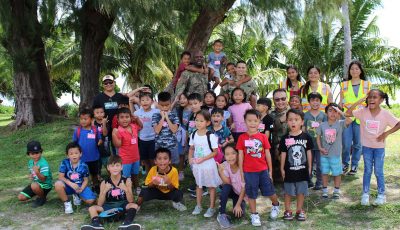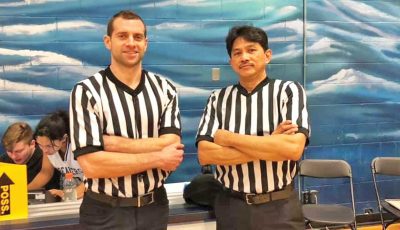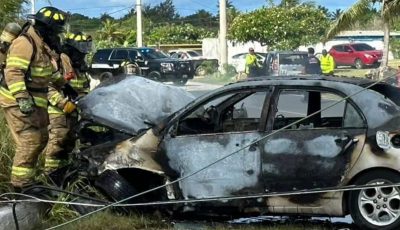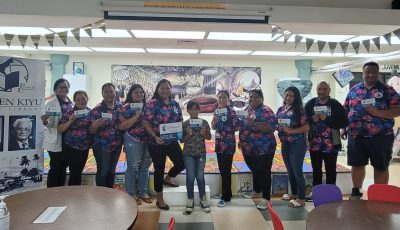Peace Officers’ Day
I am hardly the person to chronicle the virtues of peace officers, our police at the local, state, and federal levels, for in my experience they are only as good as the political administration they represent. In most cases, by my experience, they out-thug the thugs they are supposed to neutralize, save Peace Corps volunteers who I regarded as Uncle Sam’s really peace officers. They did not even carry billy clubs, let alone nitro exploders!
I remember two police officers in an outlying rural Davao City barangay in Mindanao in the Philippines. They were residents in a community that was one of four villages near the Langub comprehensive human development project I helped initiate two years earlier. With the trained leadership of the demonstration village, we oriented a set of four new ones from four outlying communities so we can do a simultaneous launching of four new replication projects. The process began with a community-wide consultation that brought outsider’s enabling methods and access to resources to merge with the villages’ vision and passion.
In the four-week launching, two resident police officers ran a gambling operation 48-hour straight on the weekends, siphoning the energy of the youth, negating our image of hope with the illusion of wealth by chance, but we tolerated them since we were a non-government effort and they were not within the scope of our influence. On the third weekend, a disciplined squad of New People’s Army rebels showed up in the village and popped the two police officers’ heads in front of their families.
I was not a fan of the NPA’s methods, but the youthful squad and their chaste intent in simply eliminating the police officers so that the community consultation can proceed without spreading fear to residents and visitors (well, not quite; a young 24-year-old volunteer from the U.S. Midwest came unglued that he walked non-stop to the Insular Hotel and stayed ensconced in his own universe until he shipped out on the next PAL flight out) was silently, though grudgingly, acknowledged. Of course, we also had the added responsibility of then dealing with two new grieving families, but we were never under the illusion about the ambiguity of our enterprise.
While living in Saskatchewan, crossing into Manitoba for Winnipeg, on a barren lonely highway, I was not cognizant of my speed until I saw a state trooper car’s top lights swirling behind me. When he came to my car window, as I was ready to present my driver’s license and car registration, he said: “Good morning, sir. Welcome to our friendly province. Do you have to be someplace in a hurry?”
I smiled. He continued: “If you are, I can provide you an escort, but if not, please keep to the speed limit.” By my estimate, I was 20-km above the speed limit, but the encounter taught me never to speed up in Manitoba again, even without a soul in the flat barren highway of the Canadian prairie, with or without the Royal Canadian Mounted Police watching.
This week, the picture of a parent being escorted by a police officer out of a BoE meeting in Vermont because he had exceeded his two-minute allotted speaking time after he objected to his daughter’s required class reading brought us back to the seamier side of our dealing with police officers.
One that I related in this column was a squad of provincial constabularies with their M-16s cocked and ready when they snuck into my training center in Mactan Island on the suspicion that I was hoarding NPA members in the facility. That was one instance I almost wet my pants.
In 1969, I went through the Seattle airport and was detained because my documents showed I was married to a U.S. citizen but was traveling on a student visa, with a long unruly hair. In 1977, I crossed from Canada to the U.S. in North Dakota on a Honda compact when I was asked if I married my wife so I could remain in the United States, directly in the presence of my wife and two kids. I answered, “Yes,” end of conversation. I was accused in Honolulu of bringing in “an unidentified person” into the country when my family of four had two U.S., one Canada (unidentified 2-year-old), and one Philippine passports, never mind that the two kids were headed to my parents residing in the big island.
My experience with Saipan’s then-Public Safety Commissioner Charles Ingram led me to check the prospect of serving as a chaplain to the Police Department. A brother serving as chaplain to the FBI in Hawaii, and Honolulu’s Blue, with another brother serving as a social worker for the Parole Board, made me consider the option of wearing a stripe with the local peace officers. It did not materialize, but I had many occasions to be across the table from officers who dealt with CWs susceptible to the notion that they had to pay their way out of any regulation they might have violated.
It was Peace Officers’ Day yesterday, started as a memorial to those who died while doing their duty. I include on this day the Peace Officers (conservation staff in the CNMI are considered police officers) who live their lives in the performance of their duties. Hello, officers!



























